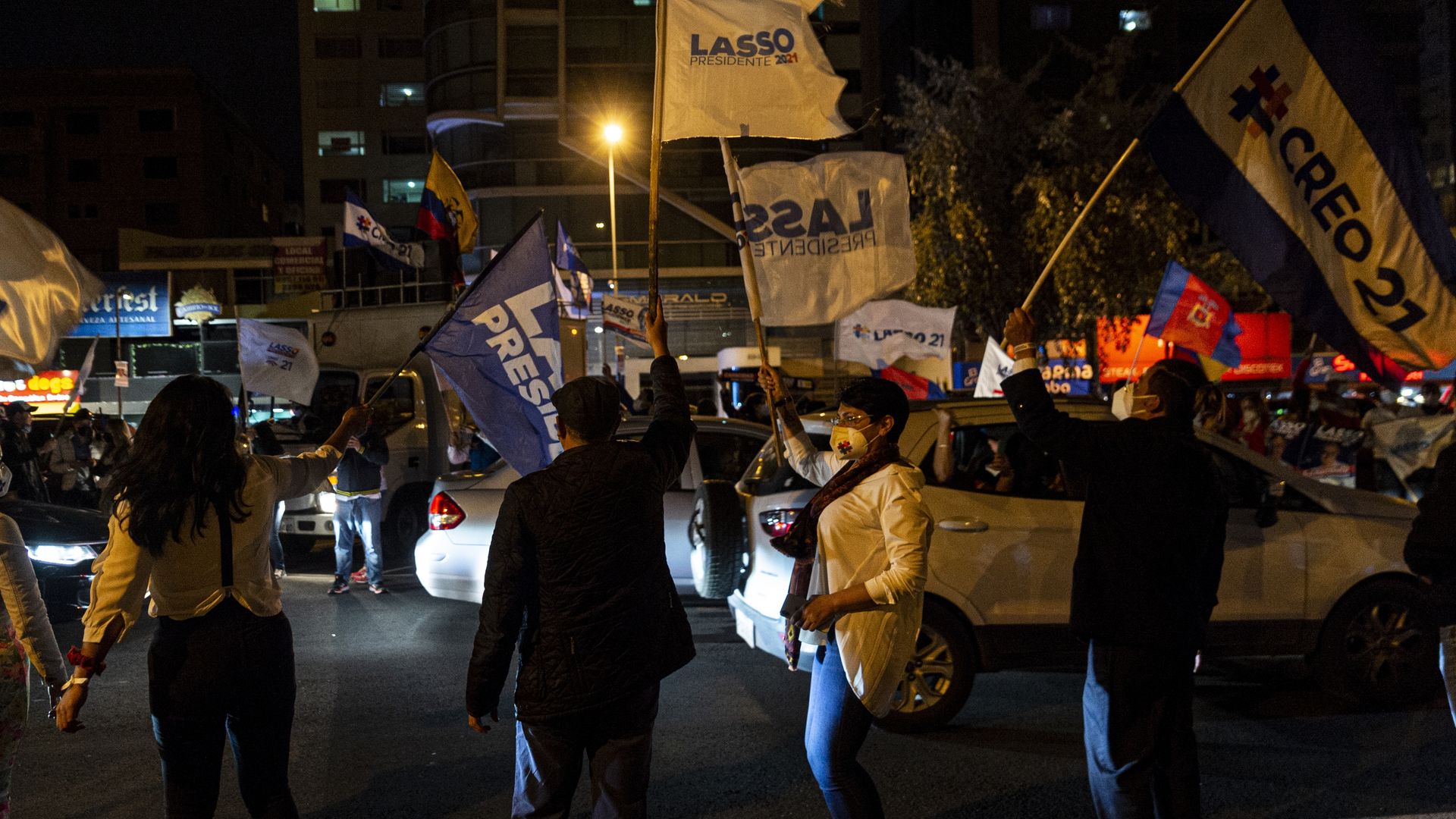Apr 12, 2021 - World
Presidential election upsets rock Ecuador and Peru
Add Axios as your preferred source to
see more of our stories on Google.

Celebrations in Quito, Ecuador. Photo: Josep Vecino/Anadolu Agency via Getty
Add Axios as your preferred source to
see more of our stories on Google.

Celebrations in Quito, Ecuador. Photo: Josep Vecino/Anadolu Agency via Getty